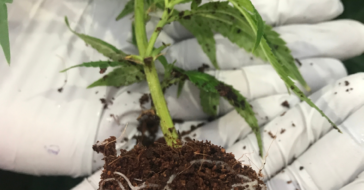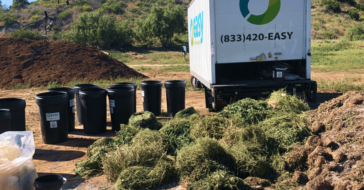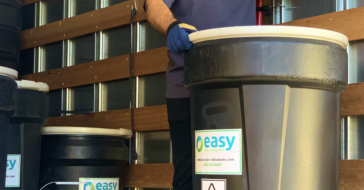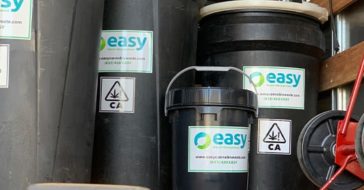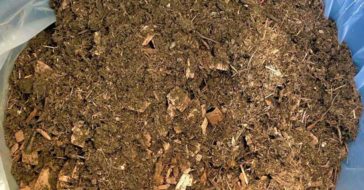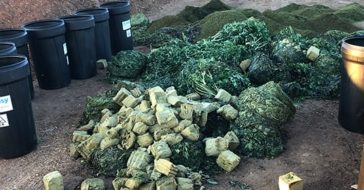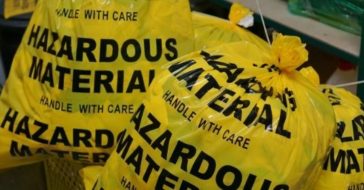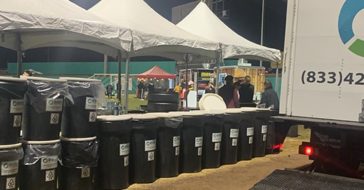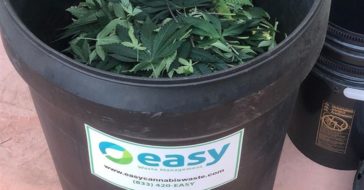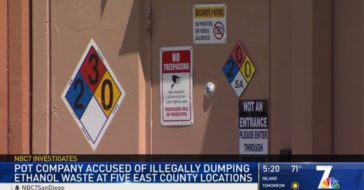While cannabis use is legal in California, you may be surprised to know that you can’t simply set up shop anywhere.
If you’re considering opening a cannabis business in California, it’s important that you do your research to discover which communities welcome your company with open arms. In fact, if you take a look at where cannabis businesses are and aren’t allowed, it may remind you of a quilt … a patchwork of areas where you may and may not do business.
Cannabis in California is highly regulated, so once you’re there, it’s just as important to maintain a good relationship so that you can operate smoothly and maintain a professional relationship with your community leaders.
Where Cannabis Businesses Are Allowed
Despite the legal use of cannabis in California, only 44% of cities and counties allow at least one type of cannabis business. Nearly 60% of cities and counties do not allow any retail cannabis businesses.
This map on the Department of Cannabis Control’s website allows you to search which cities and counties license cannabis businesses. You can filter by business type, including retail, distribution, manufacturing, cultivation and testing. You can also search by the specific city or county you are considering for your cannabis business.
For example, in Los Angeles County, 23 cities allow at least one cannabis business type. Yet 65 cities prohibit all cannabis business types. You also cannot operate a cannabis business in any unincorporated parts of the county.
As you can see, even within a county, there are certain parts where you can and can’t operate a cannabis business.
Local Laws May Be Different
Once you find a community to call your business home, there’s a couple important caveats you should know. 
A city may have different rules than a county. Counties will have their own set of rules regarding which types of cannabis businesses can be licensed. However, county rules only apply to unincorporated areas of the county. Cities within that county do not have to enforce those same rules.
Incorporated cities can determine which types of cannabis businesses they want to license – if any at all. So you may come across a county that does not license cannabis businesses and think that’s the end of your search in that county. However, if you look closer, you may be able to do business in a city within that county as long as it is located within city lines.
Cities and counties can also license a type of cannabis business, but they are allowed to place additional restrictions. For example, a municipality may only allow a certain number of retail licenses.
Your Next Steps After Becoming Licensed
Once you select a location, obtain your cannabis license and complete the initial steps of opening your business, it’s critical to do everything by the book so that you can maintain compliance and maintain a quality relationship with the community to which you are providing services.
This process involves learning the requirements for your business. The Department of Cannabis Control (DCC) imposes several California laws and regulations in a variety of areas, from standard operating procedures and employee training, to waste management and the design of your facilities.
For example, you must meet any local, county and state requirements in:
- Packaging and labeling
- Using the track and trace system
- Keeping cannabis waste separate
- Rendering certain types of cannabis waste unusable
- Storing your cannabis waste securely
- Creating a waste management plan
As you can see above, many of the requirements you’ll need to follow involve the waste management of your cannabis, from how to dispose of marijuana waste to proper cannabis waste storage.
Choosing the right cannabis waste management company can help you ensure compliance with all waste disposal regulations while also minimizing your environmental impact and maximizing operational efficiency.
A waste management partner can provide expertise in proper waste handling, documentation and disposal methods tailored to the specific needs of your cannabis business, while building credibility and trust within the community by demonstrating your commitment to responsible and sustainable business practices. Let’s take a closer look at key considerations as you evaluate waste management partners.
What Cannabis Waste Services Should Offer
As you explore waste management for your cannabis business, prioritize selecting a partner who can uphold compliance, sustainability and community trust. Communities in California vary in what types of cannabis businesses they allow, and it’s important to ensure your business aligns with local regulations and fosters positive relationships to maintain trust and support.
Here are some key traits of what a successful and reputable waste partner should offer:
- Regulatory Compliance: Ensure that the waste management company is well-versed in local, county, state and federal laws regarding cannabis waste disposal since they can vary based on locality. The company should have a thorough understanding of requirements related to packaging, labeling, track and trace systems, waste rendering, storage, and overall waste management protocols.
- Expertise and Experience: Look for a waste management partner with specific experience in handling cannabis waste. They should have knowledge of the unique characteristics of cannabis waste and be able to provide tailored solutions that meet regulatory standards while optimizing efficiency.
- Documentation and Reporting: A reliable waste management partner should offer comprehensive documentation and reporting services. This includes maintaining accurate records of waste generation, transportation and disposal to ensure compliance with regulatory requirements. Transparent reporting demonstrates accountability and helps build trust with regulators and the community.
- Environmental Responsibility: Choose a waste management company committed to sustainable practices and environmental stewardship. They should offer solutions for recycling and proper disposal of cannabis waste in accordance with environmental regulations. Demonstrating a commitment to sustainability can enhance your company’s reputation and appeal to environmentally conscious consumers.
- Reputation and Reliability: Research the reputation and track record of potential waste management partners. Look for companies with a proven history of reliability, integrity and professionalism in serving cannabis businesses. Client testimonials, industry certifications and references can provide valuable insights into their reliability and performance.
By carefully evaluating these factors and selecting a reputable waste management partner, you can ensure compliance with cannabis regulations, promote sustainability and foster trust and credibility within the community as you operate your cannabis business.














